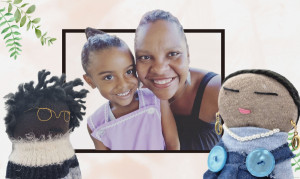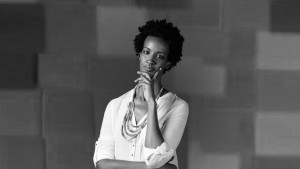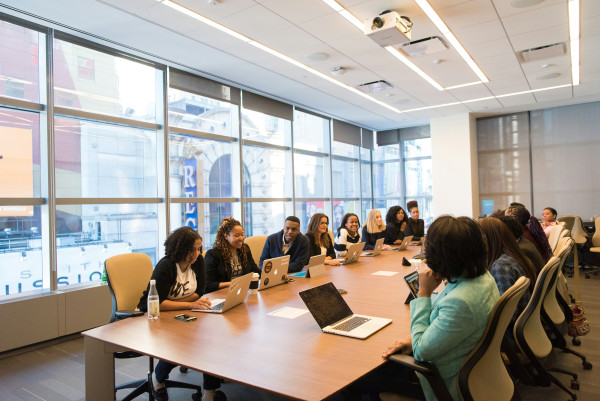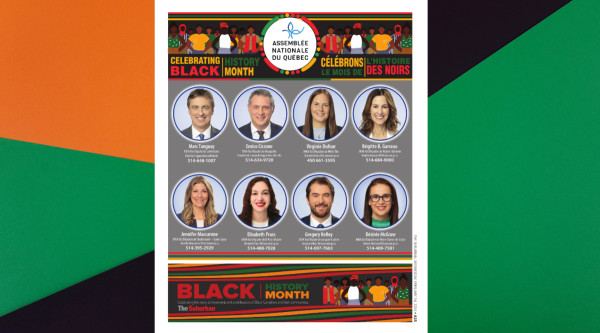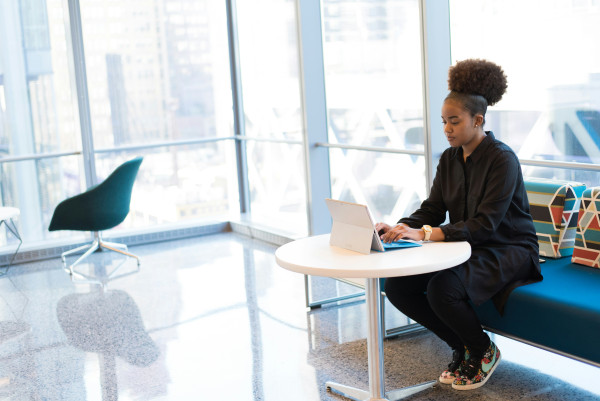Grey is a sportscaster, a reporter for the Toronto Raptors and the host of The Shift on TSN. Parris is the creator and showrunner of Revenge of the Black Best Friend, the host of the CBC’s Marvin’s Room, and an author and columnist. And Newman-Bremang is the Global Deputy Director at Refinery29, the editor of their Unbothered section, and a freelance podcast producer. The women may represent different aspects of the journalism and entertainment industries, but they have a lot in common, besides being Black women and terrific journalists.
One of those is mutual appreciation and admiration. Grey, Newman-Bremang, and Parris are all friends, and I suspect that they were more excited about each other’s awards than they were about their own.
BB: I wanted to start by saying congratulations on getting the award! What was your reaction when you found out?
Amanda Parris (AP): Well, the funny thing is that my notification was through Kathleen. She texted me, “HAVE YOU CHECKED YOUR EMAIL?!?!” When I read it, I think the first thing I thought was disbelief; there was a moment of imposter syndrome. But, I think the way I was able to get over that part was just the joy and the honour of being named alongside Kathleen and Kayla. That is just so beautiful; I am so in awe of both women and admire them so much. So, I tried to get over this self-loathing moment of “you're not the one who should get this” and move to “how incredible and humbling it is to be named alongside these two women.”
Kathleen Newman-Bremang (KNB): I was shocked, excited, honoured, and humbled. I called Kayla, who’s one of my best friends and we just cried on FaceTime. I was the only one crying.
After all the things that come with getting recognition like this, imposter syndrome creeps in a bit. You start feeling like, “why me?” Part of what mitigated that was being honoured alongside Kayla and Amanda, whose work I admire. It was so amazing to be in company with them because I respect them and their work so much and love them as people.
Hopefully, being called a Changemaker means the CSA is committing to more change. For the three of us, specifically, we are not people who will stay silent. We're also not going to say, “thanks for this, you are now this perfect organization,” or “now, the media industry in Canada is fixed.” So to me, this award and the fact that it’s the inaugural one just means that the CSA is hopefully committed to more change and that this is going to be a continuation of conversations that we've been having for years.
BB: Why is advocacy important to you and the work that you do?
Kayla Gray (KG): I think as great as the Changemaker Award is, and again, I am honoured to have gotten that, but that's not my lane. I say that in a sense that there are certain circles and spaces that I don't understand in that realm; I'm just a girl from Scarborough. I don't understand the politics; I'm not for the politics. And while I do represent in that space, given what I do and that I'm front-facing, I would much rather represent on the ground and in my communities because I know how life-changing it could be for young girls that look like me to see someone like me out here doing something.
Not just as a sports reporter but having a goal and obtaining that goal. I try to be as intentional as possible when it comes to making sure I'm rooted in the community because that's where I feel like you see the legacy. The awards are great, Changemaker has a nice ring to it, but I think what's most important to me is looking 15 years from now at someone who says, “I got into this because I saw you on TV.” That to me, is the biggest reward. I think that’s why I strive to get that face time in my community as much as possible and advocate that way.
AP: Before getting into this industry, I worked for almost a decade in activism and community arts work. I worked with young people to develop alternative educational programs. Through that work, I've made incredible connections and built a community of creatives, so of course, I want to support all of these people I know. We’ve all been working for so long, wondering, “why aren’t we getting any coverage” and then it was like, “Oh! I'm in now; we can do it!”
I know how important stories and narratives are. I know how important they are to building the senses of a nation, of citizenship, of what is normal, the idea of what is possible and what you yourself are capable of. I know that because I was teaching and I saw how important it was not just for “representation” but for the stories that young people are bombarded with. Whether it's through the news, music, TV and movies, ads, the way that their teacher talks to them, or through the social media they're engaging with. All of those things shape the narrative.
I give credit to those communities that I grew up with, that showed me the kind of person I wanted to be and what was important in terms of my life purpose; communities in Jane and Finch and communities in Malvern. So, when I walked in the doors at the CBC, I was kind of like, “This is me, take it or leave it. I'm good either way.”
KNB: Because I love this work, this industry, pop culture and entertainment, I think our voices deserve to be heard in this industry as much as everybody else. Platforming certain writers are important for me because I know that their work is great. I'm not even being biased here…but the best writers in Canada are Black women. So, it's important to me because the best writing deserves to have a platform and deserves to be read. As a fan of good writing, film, and television, I think that we deserve to have the best, and in a lot of cases, Black talent is producing the best work.
BB: The Canadian Association of Journalists published a survey earlier this year about the demographics of Canadian media outlets. It found that 3 per of journalists are Black, only 1.4 percent of Black journalists hold supervisor positions, and Black and Middle Eastern journalists were twice as likely as other journalists to be employed part-time. How have you seen these dynamics play out in the spaces where you’ve worked?
AP: I think they're not surprising numbers at all. I've been lucky that my entry into this industry came via a department that was much more diverse than most departments in the industry. My managers in television have almost always been people of colour. I've had this sort of alternative experience that I know is not the norm. The space I came into at CBC Arts was made up of a lot of younger people, a lot of diverse people, and I think that created space for lots of new ideas. We all had similar politics, so the pushback that many people talk about having when they’re pitching ideas and the distance between the subject and the writer that often happens when BIPOC are covered in mainstream media wasn't always the case in that department.
KNB: There hasn't been a lot of race-based data to back up these facts that we already knew, it’s just a validation of our experiences. One of the things I've been trying to push for is that it isn't just about the “racial reckoning'' that happened in 2020. That was very much about hiring Black people; in some cases, companies did that. Then that entry-level Black employee is coming into a situation where they have no power because all of the people in power are white, and it's not a safe environment for them. So again, the stats confirm what we already know, but they also shine a light on what needs to change, and then it needs to be more of a top-down situation. Let's talk about the executives, let's talk about who's making the decisions because I've been that one Black person in the room who's fighting with a boss for my humanity on a Tuesday morning meeting, and it's not fun, it's not safe. It's really traumatizing.
BB: I've always thought about "safe" in this kind of context of being mentally safe, not being triggered or something like that. But there's also personal safety. Like knowing that if you say something, you could get fired or blacklisted, your living situation could become precarious, and that's a whole different kind of safety. And when you talk about power and being in a position where someone has power and you don't. I didn't think about it at that level, but it's unsettling.
KNB: You're right. It's like you're putting your livelihood on the line to fight for something you feel is bigger than you, to try to have your community reflected in the work that you're doing, having your humanity be told in stories like other groups can. It is unsettling, frustrating, and unfair that we have to be in rooms where you have to choose between "am I going to fight this battle and potentially get fired and not be able to pay rent? Or am I going to sit here and swallow the injustice of catering to a white audience and erasing Black stories?"
KG: I've been exposed to these numbers in real-time very early, especially in sports media in Canada. I feel like there were a lot of promises made in 2020; now, in 2022, I would love to see some of those lists of tangible items that people put out as more of a PR statement; I’d love to see an update on where they're at with those numbers.
I think the biggest thing and why we’re lacking when it comes to people of colour being up there is in the stakes and ownership. When I created The Shift, it was incredibly important for me to have the executive producer tag on it. I wanted that more than I wanted to host it because it's important for me to have some sense of ownership of my work, creativity and ideation. I can talk all day and make it look pretty on-air and speak to why representation matters and why we need diversity but I didn't really have any power when it came to hiring, when it came to content, and when it came to what stories I thought were important. With The Shift, I've allowed myself to do that and being the executive producer, just proving that we can do it and getting to season two, that we're not just a flash in the pan.
BB: Kathleen mentioned on the This Matters podcast, that as Black people we’re taught you have to be excellent in order to succeed in an anti-Black world, as Black excellence can act as a shield. She also talked about the idea that you have to work twice as hard to be considered half as good. When it comes to Black excellence and that idiom, what are your experiences with that in real life?
AP: I think I drank the Kool-Aid regarding this whole idea of Black excellence. I was that person who was like, “I just got to be excellent at everything.” I went through a formative experience when I was young. I remember feeling like I had nothing to fall back on because nobody knew me; nobody was coming to defend me because nobody knew who I was. There was this weird moment where I thought, “I got to work super hard to illustrate all of my politics and principles and build a strong community around me. If I were excellent enough, it would be impossible for someone to drag my name through the mud again.” Clearly, I am incorrect. I think it also led to a toxic way of working and moving through the world where it’s like I have to accomplish as much as possible, and long after that, proving that person wrong was the goal, it just became my norm.
KNB: I'm still working through it. We were sold this idea that if we work twice as hard, that's all we have to do. If we were excellent enough, then we could somehow bypass these barriers, and it would all be okay. I think that comes from the generation before us, our parents who did the best they could and were trying to set us up for success in industries that want us to fail. That's the only message they knew, and that's what they were trying to equip us with to succeed, and I get it. But what we now know is that that doesn't work. Our excellence does not save us from the realities of anti-Black racism in the workplace. So I think it is about dismantling that pressure or idea that our excellence will save us because your excellence is nothing against systemic issues.
KG: At one point early in my career, I fell victim to it; I was chasing this unattainable person. I think I have a certain type of personality, and I dress a certain way that if you were to Google what a professional looks like, I sure as hell wouldn't even pop up in the top 100 in that search. And yet here I stand. When I think about what Kathleen said, and striving toward that, I feel it; I hear it because you almost feel like if anyone can look back at your stuff or read your work, and find zero to complain about, then you're safe, you've made it, you're good. I don't want to be safe and good, though I want to be my best. I want to thrive in this space.
I've realized in the last couple of years that I can't do that if I'm not showing up authentically. You're going to find blemishes and blips on my resume and things that I say and the ways in which I move but everyone does that. I need to allow myself room and space to mess up sometimes. But I think we as people try to cover ourselves so much in this idea of perfection because we don't want to be touched. We must understand that people are always going to say what they need to say about you no matter what, and they're just waiting. They're just waiting for you to prove their point, and sometimes maybe I might prove someone's point, but that's not my business. So I think you have to almost have this level of not caring to break through that chain, that wall in striving for perfection in a white man's world.
BB: It's been a tumultuous, strange, and transformative past two years and change and things are opening back up. What particular changes would you like to see either in yourself or in society, as we progress through the rest of the year?
AP: I feel overwhelmed by the state of this world at this moment. But personally, I feel like I've spent a lot of time amplifying and elevating the voices of other folks and right now, I want to spend time nurturing my own creative voice. I've gotten the chance to do that through this new show, Revenge of the Black Best Friend. It's a new scripted series I created. In the past, I've put those things as my side project, and I hope I can move towards the creative side of being closer to my primary thing.
KNB: I would love for us to know that there is no normal to go back to and that normal wasn’t great. I think the biggest tragedy out of all this would be if nothing changed. As if we went through this completely life-changing, system-altering thing that stopped the whole world and gave us a chance to look at the systems we had in place and the things that we've been doing and reassess them. I think the greatest tragedy would be if we just went back to them. That means reassessing our school systems, our healthcare system, how we treat our elderly, how we treat disabled people, how we protect each other, and what it means to be a community and to take care of each other.
KG: I want people to show up way more honestly. When you unpack the last 20 years of people not being truthful about who they are or intentionally chasing who they are. I feel like once you're on that path, you do that self-work to sit with who you are, and figure out what you genuinely want for yourself, the relationships you genuinely want, and what and who makes you happy.
You have so much that shifts once you commit to that, once you start moving and building your work and living your life around those gems you find. So I feel like when we collectively do that, we can move and change and look so much different. So I hope we all get to that place that truly respects each other's truth.
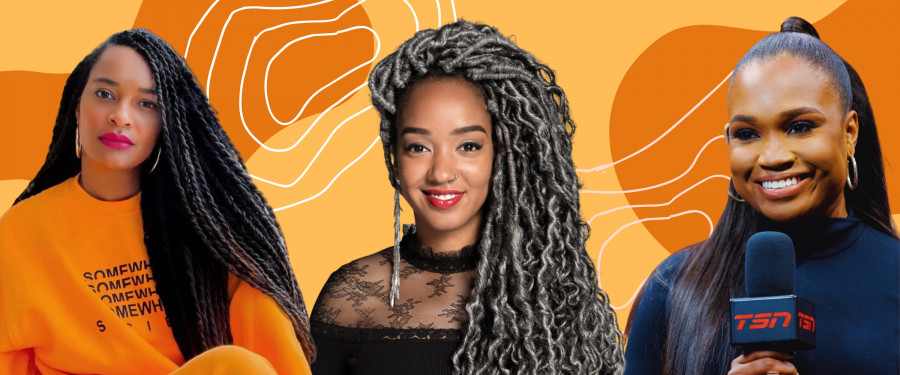
 By
By 




